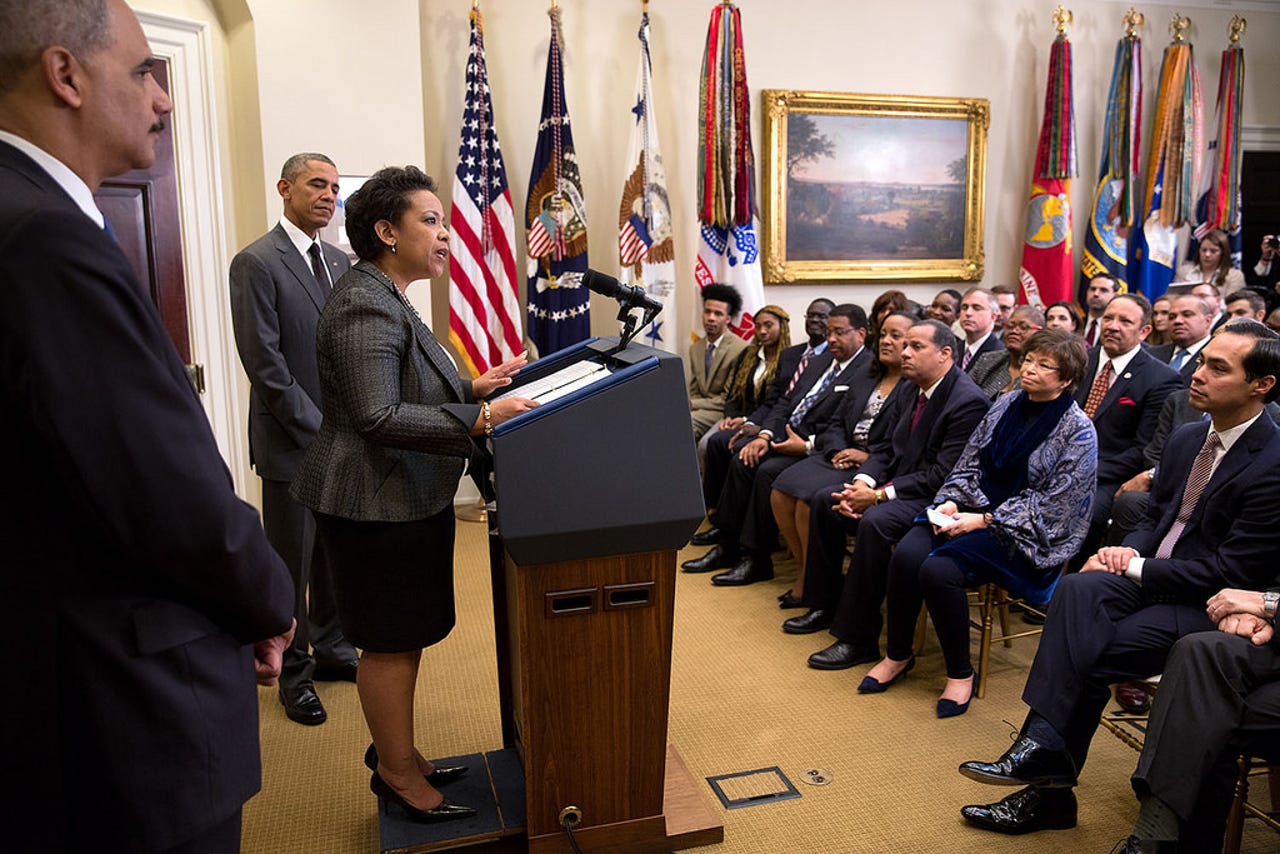New US attorney general refuses to drop Microsoft foreign data warrant


US prosecutors will continue to seek data stored in Ireland using a federal search warrant, despite leadership changes at the Justice Department.
A spokesperson confirmed in an email that the department's position has "not changed," two weeks after Loretta Lynch, the Obama administration's choice to head up the federal agency, was confirmed by Congress as the new US attorney general.
Federal prosecutors in December 2013 sought and secured a search warrant, compelling Microsoft to hand over customer data stored in its Dublin datacenter, arguing that existing channels for international law enforcement requests for help are too slow. The technology giant refused, arguing that the US search warrant does not apply to overseas datacenters. Microsoft challenged the warrant, arguing in a court brief the Obama administration was "rewriting" the "explicit text" of the law to fit its case.
The case has wide-ranging implications for the US technology industry if the government succeeds, legal experts have warned.
Contempt of court
After further refusing to hand over the data, Microsoft later accepted contempt of court charges, which the company said was to allow it to further appeal the case.
US District Judge Loretta Preska did not impose immediate sanctions nor indicate that the charges were anything other than procedural. However, Preska did rule that the government "reserves its right to seek sanctions" if the company further refused to hand over the data should the appeal fail.
A source familiar with the case, who declined to be named as they were not authorized to speak on the record, said any sanctions would technically be civil, rather than criminal.
However, judges have wide discretion in contempt hearings and could seek fines or prosecution of individuals.
Wide ranging implications for Silicon Valley
Tech companies and telecom giants quickly rallied around Microsoft, in what remains one of the closely watched privacy cases in modern history.
Featured
Should the government win the case, companies are concerned about the effect it will have on their businesses. In response, Apple, AT&T, Verizon were among those who filed amicus briefs with the court in Microsoft's support. Privacy group the Electronic Frontier Foundation (EFF) argued that the court's decision undermines the constitutional and statutory protections for a person's data, and threatens international treaties and agreements.
But concerns hit European soil and the effect on its citizens. The bloc of 28 member states is known for having some of the strongest privacy protections in the world.
Former EU Justice Commissioner Viviane Reding argued that the US would be falling foul of international law if Microsoft was compelled to hand over the data.
Oral arguments are set for later this summer, though a date has not been formally set.
Microsoft did not immediately comment.